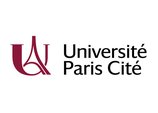Smartphone Pocket Lab: Experimental Classical Mechanics
- Durée : 9 semaines
- Effort : 36 heures
- Rythme: ~4 heures/semaine
- Langues: Anglais
Description
In the MOOC "Smartphone Pocketlab", you do real physics experiments at home and you learn scientific description of movement : speed, acceleration, trajectory...
The needed equipment is a smartphone and a laptop. This is all.
The proposed experiments explore the concepts presented in the course 'Classical Mechanics' that is taught in all universities. They introduce participants to a scientific description of motion by doing themselves experiments at home (no lab required).
The experiments are organised in 5 sessions: the pendulum (S3) and the free fall (S1) with illustrations directly from Galileo and Newton, while the Session 2 (S2) deals with rotation and Session 4 (S4) with oscillations and vibrations.
In Session 5 (S5), you do your own experiment: you can study trajectory of a bicycle, of a train. As an example, we show you how to quantitatively study the trajectory, speed and acceleration of a tramway. New ideas welcomed.
Smartphone Pocket Lab is a “Learning by doing” course. The needed lab is your smartphone
Doing experiments in Classical Mechanics is the objective. It is a "Do It Yourself (DIY)" strategy.
Classical Mechanics is a scientific course on motion, trajectory, displacement. It is a first year course taught in all universities in the world to all students in sciences and technology.
Studying Classical Mechanics requires to do experiments. Proposed experiments are related to major chapters of the course “Classical Mechanics”.
The scientific method involves facing reality in details to obtain a precise and meaningful description of the probed concepts. This is at the heart of the scientific experimental method as it is developed in laboratories.
Here the lab is your smartphone connected to your laptop.
No other material or scientific instrument is needed.
The scientific approach of motion has always been of key importance.
In modern societies, it is probably even more relevant in many fields including design, arts,…
Use of smartphone opens new opportunities to explore movements including movements of body and gestures. In fact, we never notice it but this is what smartphones are measuring all time during their use in everyday life.
Smartphones when used as labs are so powerful that they enable students to define new experiments. Your ultimate success if your enter this course would be that the experiment you propose in session 5 is a surprise for the Course Staff and for others students.
Through our free and open software iMecaProf, movements of a smartphone are measured and interactively represented in real time using the associated audio-visual interface. This is a newly developed tool to enter exploration of scientific concepts, which describe all kind of movements. It is a pedagogical tool developed for both scientists and non-scientists.
Format
This archived course remains open to registrations although it is not facilitated by the course teachers
Prérequis
It is perfect if you have scientific knowledge needed to enter university.
If this knowledge is not complete or partially lost or somewhat old, we shall propose you a qualitative approach.
This qualitative approach is based on the use of a real time and interactive representation on your laptop screen of measured data. This representation is based on our open source software iMecaProf.
You can therefore do experiments following two different strategies:
Strategy 1:
You are interested by playing with scientific concepts associated to motion, but not necessarily by entering a full quantitative data treatment.
The strategy 1, firstly based on this qualitative approach is what you are looking for. This is made possible using iMecaProf. For example, you shall control by hand a pendulum (The smartphone is hanging from its charging cable whose USB connector, the upper extremity, is held by your hand). To do so you shall use real time information on laptop screen as a dashboard. Part of this qualitative strategy of learning is based on games.
Strategy 2:
You want to have first this qualitative approach to play with your smartphone and with key concepts associated for example to energy conservation.
But you also want to do a full quantitative analysis of real data collected during your experiment, then we have built for you a second strategy.
In strategy 2, first you play with physics as in strategy 1, but when you are happy with qualitative control of experiment, you save data in a .csv file that can be transfered in any spreadsheet such as Excel. In that case, you will learn to do experiments and to treat the collected data by smartphone sensors using Classical Mechanics at the level required by most universities in first year. In order to do quantitative data treatment, we shall use of a spreadsheet such as Excel. This can be learnt during the course
Evaluation et Certification
This course does not issue a badge, certificate or certificate.
Plan de cours
It is built in five sessions (one every two weeks):
- Free fall and 1D motion (start, move an stop)
- Circular motion
- Pendulum
- Mechanical oscillations
- Motion in real life: train, bicycle,...
Équipe pédagogique
Joël Chevrier
Catégories
Établissements
Partners
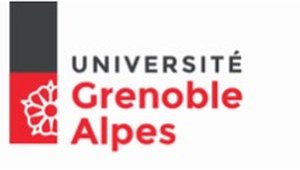
UGA
Ce cours en ligne est issu d'un enseignement expérimental au Département de Licence Sciences et Tech de UGA et développé au CIME Nanotech
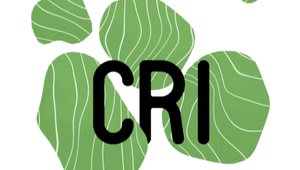
CRI PARIS
Ce cours est financé sur le programme Mooc Factory soutenu par la Mairie de Paris et mis en oeuvre par SCIRE.
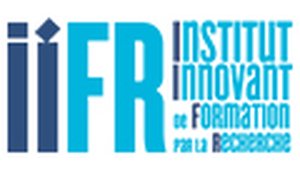
IIFR
Ce cours est financé sur le programme d'Investissements d'Avenir lancé par l'Etat et mis en oeuvre par l'ANR au travers du projet IDEFI.
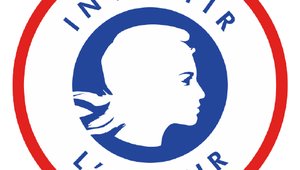
IDEFI
Le programme Investissement d'Avenir finance l'IDEX Sorbonne Paris Cité et le projet IIFR.
Social Networks
Licence
Licence pour le contenu du cours

Attribution - Pas d’Utilisation Commerciale - Pas de Modification
Vous êtes autorisé à :
- Partager — copier, distribuer et communiquer le matériel par tous moyens et sous tous formats
Selon les conditions suivantes :
- Attribution — Vous devez créditer l'oeuvre, intégrer un lien vers la licence et indiquer si des modifications ont été effectuées à l'oeuvre. Vous devez indiquer ces informations par tous les moyens raisonnables, sans toutefois suggérer que l'offrant vous soutient ou soutient la façon dont vous avez utilisé son oeuvre.
- Pas d’Utilisation Commerciale — Vous n'êtes pas autorisé à faire un usage commercial de cette oeuvre, tout ou partie du matériel la composant.
- Pas de modifications — Dans le cas où vous effectuez un remix, que vous transformez, ou créez à partir du matériel composant l'oeuvre originale, vous n'êtes pas autorisé à distribuer ou mettre à disposition l'oeuvre modifiée.
Licence pour le contenu créé par les participants du cours

Attribution - Pas d’Utilisation Commerciale - Pas de Modification
Vous êtes autorisé à :
- Partager — copier, distribuer et communiquer le matériel par tous moyens et sous tous formats
Selon les conditions suivantes :
- Attribution — Vous devez créditer l'oeuvre, intégrer un lien vers la licence et indiquer si des modifications ont été effectuées à l'oeuvre. Vous devez indiquer ces informations par tous les moyens raisonnables, sans toutefois suggérer que l'offrant vous soutient ou soutient la façon dont vous avez utilisé son oeuvre.
- Pas d’Utilisation Commerciale — Vous n'êtes pas autorisé à faire un usage commercial de cette oeuvre, tout ou partie du matériel la composant.
- Pas de modifications — Dans le cas où vous effectuez un remix, que vous transformez, ou créez à partir du matériel composant l'oeuvre originale, vous n'êtes pas autorisé à distribuer ou mettre à disposition l'oeuvre modifiée.

